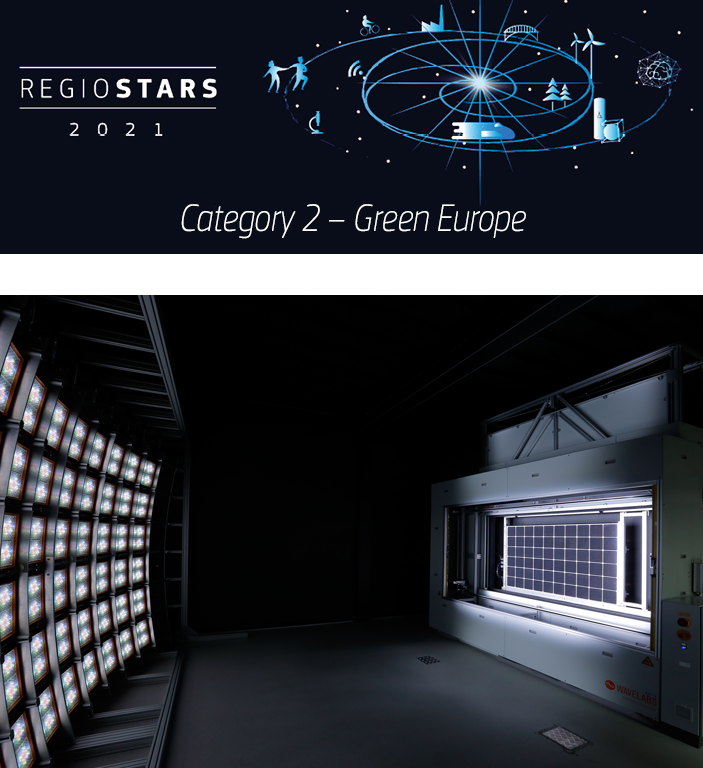A collaboration between four Belgian research institutions has been transformed into an energy research, development and innovation hub in the Flanders region. The project Towards a Sustainable Energy Supply in Cities, has financed state-of-the-art facilities, a large-scale living lab and research for energy technologies and services at the EnergyVille site, at the Thor Park industry incubator. Working with local communities and businesses, the hub has developed innovations and shared knowledge to accelerate Europe’s transition to a carbon-free society.
Energy research and innovation hub in Flanders shapes Europe’s low-carbon future
- 10 June 2021
The unique complementarity of the research partners enabled us to integrate the entire energy system value chain. EnergyVille now brings research, development and training together, in collaboration with local, regional and international partners from industry and public authorities.
Under the project, EnergyVille has grown to provide 1 400 m2 of laboratory infrastructure, state-of-the-art equipment and expert teams. It has developed 14 groundbreaking demonstrations and continues to work on solar, thermal and ICT technologies and applications for energy systems.
Over 400 people now work at the centre, which is still growing. Innovations are making major CO2 savings in the region every year, while publications and events share knowledge with policymakers, industry and the public on how to make energy systems and urban areas more sustainable.
Targeted tracks
The complementary interests of the EnergyVille partners allowed the project’s research to integrate the entire energy system value chain and different levels of technology development.
Innovation was organised along three tracks that can decarbonise our energy systems: SolSThore investigated novel, more efficient solar cells and optimised power electronics and batteries. GeoWatt looked into fourth-generation thermal networks, which can harvest and distribute waste heat for low-carbon heating and cooling. Finally, SmarThor researched energy-as-a-service, in which ICT manages energy from renewables for a reliable supply, and connects electricity, gas, heating and cooling.
Investigations ranged from materials and components to entire energy systems, business models and strategies. Notable achievements include photovoltaic (PV) solar cells that can be integrated into building façades and a technical and economic framework to integrate thermal and electrical energy in multi-energy systems.
Low-carbon boost
Innovations from EnergyVille are already in use at a geothermal energy installation at Janssen Pharmaceutica and a 30 km heat network for grid operator Fluvius, saving around 15 900 tonnes and 22 600 tonnes of CO2 respectively each year. For policymakers, project insights include a paper on building renovation to boost the economic recovery and an outlook to plan the Belgian energy supply in 2030 and 2050.
Locally, EnergyVille is expanding its battery, PV and power electronics labs, adding to its attraction for sustainable-energy start-ups to Thor Park and to its contribution to the local economy.
To keep the innovation momentum going, the project held a course for 16-18-year-olds, hosted expert talks for the general public, and debates on the energy transition.
Beneficiaries
‘This project enabled me to put DC nanogrids into practice, which has proved crucial in bringing DC technology to the market, and which ultimately led to the creation of dcinergy, the company I run today.’
Giel Van den Broeck, co-founder, Direct Energy Partners and former PhD student at EnergyVille/KU Leuven
‘EnergyVille is of key importance in the energy transition. Thor Park is the first and only regulatory sandbox in Flanders where companies can test their new technologies in real life. The city of Genk will be in pole position to implement the learnings of EnergyVille, by connecting neighbouring zones to the Thor Park open living lab at an early stage.’
Wim Dries, City of Genk mayor
Total investment and EU funding
Total investment for the project “A Sustainable Energy Supply in Cities” is EUR 25 000 000, with the EU’s European Regional Development Fund contributing EUR 10 000 000 through the “Regional Research and Innovation” Operational Programme for the 2014-2020 programming period. The investment falls under the priority “Transport and energy networks”.

